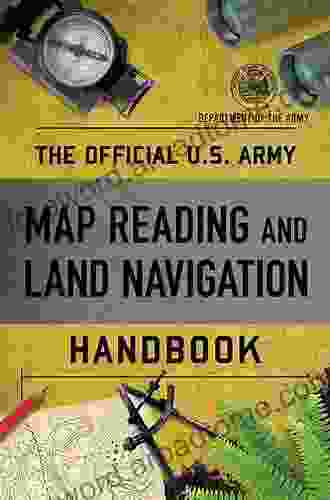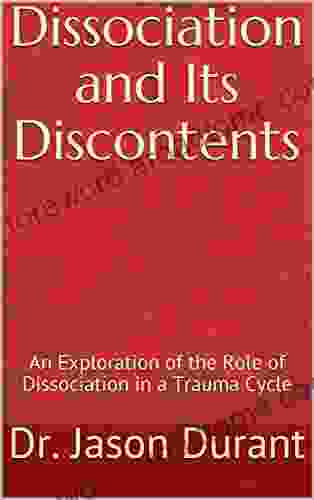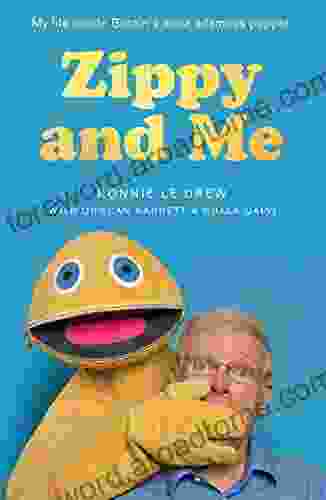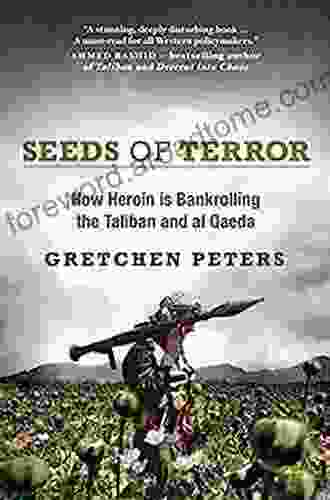An Exploration of the Role of Dissociation in the Trauma Cycle

Trauma, an insidious and often life-altering experience, leaves an enduring imprint on its victims. Dissociation, a psychological coping mechanism triggered by overwhelming trauma, further exacerbates the effects of this life-altering event. This article embarks on a comprehensive exploration of the complex relationship between dissociation and the trauma cycle, shedding light on the intricate mechanisms that perpetuate this debilitating pattern.
The Trauma Cycle: A Vicious Grip
The trauma cycle, a relentless and self-reinforcing pattern, entraps victims in a seemingly endless loop of distress. Individuals who have experienced trauma often find themselves re-experiencing the event through intrusive memories, flashbacks, and nightmares. These re-experiencing symptoms plunge them back into the terror and helplessness of the original trauma.
Avoidance, another hallmark of the trauma cycle, becomes a defense mechanism to shield individuals from the pain associated with traumatic memories. However, this avoidance only intensifies the hold of the trauma, preventing victims from fully processing and healing from their experiences.
5 out of 5
Negative cognitions and emotions, byproducts of the trauma, further perpetuate the cycle. Self-blame, shame, and guilt weigh heavily on victims, casting a long shadow over their thoughts and feelings. These negative cognitions reinforce the belief that they are flawed and unworthy, further entrenching them in the cycle.
Dissociation: A Coping Survival Mechanism
Dissociation, a complex psychological response to overwhelming trauma, emerges as a way for individuals to cope with the unbearable pain and horror of their experiences. It allows them to temporarily disconnect from reality and escape the overwhelming emotions.
Dissociation manifests in various forms, ranging from depersonalization (feeling detached from one's body) to derealization (feeling detached from the external world). It can also involve amnesia, blocking out memories of the traumatic event or entire periods of time.
While dissociation can provide temporary relief, it ultimately hinders true healing. By fragmenting memories and experiences, dissociation prevents victims from fully integrating and processing their trauma. This lack of integration perpetuates the cycle of re-experiencing, avoidance, and negative cognitions.
The Interplay of Dissociation and the Trauma Cycle
Dissociation and the trauma cycle are inextricably linked, each exacerbating the other. Dissociation intensifies the symptoms of the trauma cycle, while the trauma cycle triggers and reinforces dissociation. This interplay creates a vicious spiral that leaves victims trapped in a state of perpetual distress.
For example, dissociation during a traumatic event can lead to memory fragmentation and gaps in the victim's recollection. These memory gaps can fuel feelings of guilt and shame, as the victim struggles to make sense of what happened. This negative self-perception can then drive avoidance behaviors, further reinforcing the cycle.
Breaking the Cycle: Healing from Trauma and Dissociation
Breaking free from the trauma cycle and healing from dissociation requires a multifaceted approach that addresses both the symptoms of the trauma and the dissociation itself.
Trauma-focused therapy plays a crucial role in this process. Therapists guide victims through the arduous task of confronting their traumatic memories in a safe and controlled environment. Processing these memories allows victims to gain a deeper understanding of their experiences, challenge negative beliefs, and develop more adaptive coping mechanisms.
Dissociation-specific therapies, such as Dialectical Behavior Therapy (DBT) and Eye Movement Desensitization and Reprocessing (EMDR),aim to reduce dissociation and its impact on the trauma cycle. These therapies teach victims how to regulate their emotions, tolerate distress, and reintegrate fragmented memories.
The relationship between dissociation and the trauma cycle is a complex and distressing one. Dissociation, while a coping mechanism in the face of overwhelming trauma, ultimately hinders true healing. By understanding the interplay between these two phenomena, clinicians and individuals can better address the challenges of trauma and embark on the path to recovery.
Breaking the trauma cycle requires a comprehensive and individualized approach that includes trauma-focused therapy, dissociation-specific therapies, and ongoing support. With the right resources and a commitment to healing, victims of trauma and dissociation can break free from the cycle and reclaim their lives.
5 out of 5
Do you want to contribute by writing guest posts on this blog?
Please contact us and send us a resume of previous articles that you have written.
 Book
Book Novel
Novel Page
Page Chapter
Chapter Text
Text Story
Story Genre
Genre Reader
Reader Library
Library Paperback
Paperback E-book
E-book Magazine
Magazine Newspaper
Newspaper Paragraph
Paragraph Sentence
Sentence Bookmark
Bookmark Shelf
Shelf Glossary
Glossary Bibliography
Bibliography Foreword
Foreword Preface
Preface Synopsis
Synopsis Annotation
Annotation Footnote
Footnote Manuscript
Manuscript Scroll
Scroll Codex
Codex Tome
Tome Bestseller
Bestseller Classics
Classics Library card
Library card Narrative
Narrative Biography
Biography Autobiography
Autobiography Memoir
Memoir Reference
Reference Encyclopedia
Encyclopedia Susan Iacovou
Susan Iacovou Edison De Mello
Edison De Mello Eleonora Rosati
Eleonora Rosati Mark Devlin
Mark Devlin Eli Kintisch
Eli Kintisch Edward Robinson
Edward Robinson Eleonore Stump
Eleonore Stump Fr Mark S Lawlor
Fr Mark S Lawlor Dylan Marron
Dylan Marron Ellen Finkelstein
Ellen Finkelstein Elaine Sandberg
Elaine Sandberg Mark Hyman M D
Mark Hyman M D Mina Yoo
Mina Yoo Elaine Costello
Elaine Costello Raj Bhagavathi
Raj Bhagavathi Ovais Mehboob Ahmed Khan
Ovais Mehboob Ahmed Khan Hamp Thomas
Hamp Thomas Patrick Vincelet
Patrick Vincelet Heup Young Kim
Heup Young Kim Eben Kirksey
Eben Kirksey
Light bulbAdvertise smarter! Our strategic ad space ensures maximum exposure. Reserve your spot today!
 Jace MitchellFollow ·10.9k
Jace MitchellFollow ·10.9k Jay SimmonsFollow ·7.4k
Jay SimmonsFollow ·7.4k Jon ReedFollow ·17.4k
Jon ReedFollow ·17.4k Esteban CoxFollow ·2.8k
Esteban CoxFollow ·2.8k Asher BellFollow ·15.4k
Asher BellFollow ·15.4k Todd TurnerFollow ·4.7k
Todd TurnerFollow ·4.7k Arthur Conan DoyleFollow ·10.3k
Arthur Conan DoyleFollow ·10.3k José MartíFollow ·8.1k
José MartíFollow ·8.1k

 Reginald Cox
Reginald CoxUnveiling the Extraordinary Life of It Israel Birthday...
A Captivating Narrative of...

 Glenn Hayes
Glenn HayesUnveiling the Enchanting Tapestry of "Tales From The...
Are you ready to step...

 Robert Louis Stevenson
Robert Louis StevensonUnlock the Incredible Mental Benefits of Berries:...
As the sun...

 Edwin Cox
Edwin CoxUnlock the Secrets of Terrain with the Army Map Reading...
Embark on an adventure into the untamed...
5 out of 5















